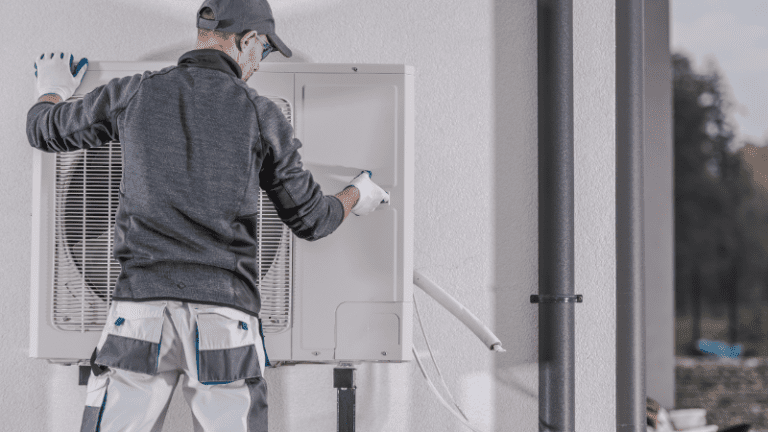We all know it’s a wise idea to have a backup commercial compressor on hand if you can. A remanufactured commercial compressor gives you the opportunity to enjoy an excellent performance at a deep discount, making backup equipment much more affordable. Even so, a whole new compressor might not be in the budget.
In situations like this, it’s even more crucial to get the most mileage out of your existing commercial compressor.
The compressor is the most important part of any commercial refrigeration system or HVAC unit. It is responsible for applying the necessary force to compress the refrigerant gas so it effectively traverses the rest of the system. It might seem counterintuitive, but refrigerant is just as crucial to heating functions as it is to cooling.
The compressor is often called the “heart” of your system, and we feel that this is an accurate statement.
The compressor does not do its job alone, and there are many other components that keep the whole system running smoothly. A good compressor can compensate for damage or inefficiency affecting these other parts. When the compressor itself fails, however, you’ve got a true emergency on your hands.
Often, that emergency is resolved at a premium by ordering an all-new compressor as fast as possible.
But with spare parts for your commercial compressor, you have options.
Some Commercial Compressor Problems Can Be Solved with Spare Parts that are Readily Available
Yes, a commercial compressor has a limited service life. But it can last a very, very long time.
With maintenance, a commercial compressor operating in an appropriate environment should function for 8-10 years. It’s not unusual to see a noticeable reduction in mechanical efficiency as year seven approaches, and a replacement plan should be in the works. But what about compressors that are newer than that?
The truth is, modern commercial compressors should almost never fail before the five year mark with proper maintenance.
There is virtually always something you can do on-site to repair a relatively new commercial compressor that is not upholding its normal performance standards. Typically, that requires you to replace a component within the compressor that has failed before its time – once you do, your system will be back in action.
A Semi-Hermetic Compressor Is Your Best Bet for Long-Term Maintenance and Easy Repairs
There are four major configurations of a commercial compressor: Open, hermetic, semi-hermetic and helirotor (aka screw) compressors.
Of the four, the hermetic compressor was once the industry standard. As time has gone on, however, semi-hermetic compressors have become the preferred choice of organizations that want to maximize the return on their compressor investment without compromising on engineering quality.
Hermetic and semi-hermetic compressors both have the motor and compressor located in a metal shell. But in the semi-hermetic model, the multi-piece shell is not welded shut. The pieces are bolted together so they can be opened for maintenance and repair work at the cost of a “true” hermetic seal against the environment.
A semi-hermetic compressor is usually a little more expensive than a true hermetic compressor, but the extra cost is well worth it. The first time you are able to open your compressor and fix a problem rather than scrap the whole thing and start over, you have already saved thousands of dollars.
Major Advantages of Having Spare Parts for Your Commercial Compressor
1. Reduce Business Impact of Compressor Failure
This is the essential argument for maximizing the maintainability of your compressor. In many businesses, sudden compressor failure that lasts longer than an hour can result in thousands of dollars in spoilage. With the right parts on hand, you may be able to intervene and get the system back online in a matter of minutes.
2. Diagnose and Resolve Issues More Quickly
Having a strong partnership with a trusted remanufacturing team can extend the life of your compressors. But you may be hours away from your maintenance expert with little time to spare. Working together on the phone or by video, you can get to the bottom of issues as they arise, instead of when they reach a crisis point.
3. Defer Major Equipment Investments
Being fully prepared for the worst case scenario often takes a back seat to the realities of a business budget. You want to replace an existing compressor on your terms when the equipment you want is available at a price you feel good about paying – not when a compressor failure forces your hand because no parts are available.
Every compressor has maintenance tasks that need to be performed weekly, monthly, quarterly, and annually. In the course of this upkeep, you might notice issues that stand to have a long-term performance impact. Having spare compressor parts right in your stock room means you don’t have to leave the future up to chance. Be proactive with your compressor and you are much more likely to get great results.












